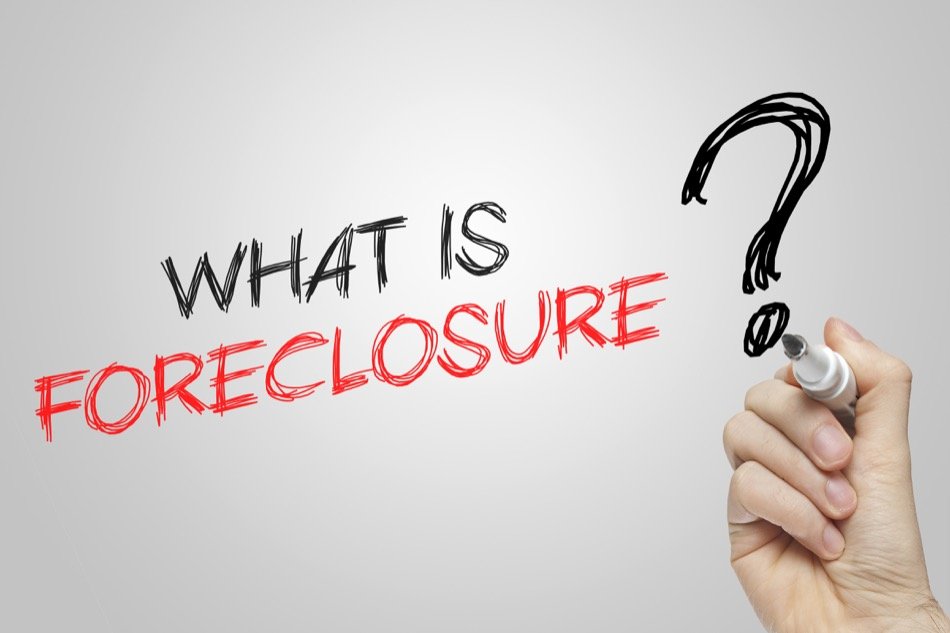How to Navigate the Foreclosure Process
Posted by Justin Havre on Wednesday, December 4th, 2019 at 8:27am.
 Homeowners in a foreclosure situation can feel like there's pressure from all sides, and this unfortunate reality can add unnecessary stress to the whole process. It can also result in homeowners being too afraid to make a move to settle their loan. Instead of becoming frustrated though, understanding the process can make it easier to muddle through.
Homeowners in a foreclosure situation can feel like there's pressure from all sides, and this unfortunate reality can add unnecessary stress to the whole process. It can also result in homeowners being too afraid to make a move to settle their loan. Instead of becoming frustrated though, understanding the process can make it easier to muddle through.
For informational purposes only. Always consult with an attorney, tax, or financial advisor before proceeding with any real estate transaction.
Many Lenders Are Flexible
The process of selling a home for a lender is not a straightforward one. Lenders are in the loan industry, not the real estate industry. Due to this fact, lenders may be more lenient than homeowners realize. But because missing payments can be a confusing time for homeowners, they don't always realize this. While each situation is different, all owners are encouraged to start a dialogue with their lenders to let them know why there's been a delay.
What Is a Judicial Sale?
Certain provinces in Canada, such as Alberta British Columbia and Manitoba, are subject to judicial sales. This essentially means that the court will have a more substantial role in the foreclosure. This is in contrast to a power of sale, practiced in provinces such as Ontario, Newfoundland, and New Brunswick, where it's primarily the lender that gets to make the decisions about what happens and when.
The primary difference is that a judicial sale tends to be much more complicated than a power of sale. The lender will first need to formally sue the owner to begin the foreclosure, which can take some time to get started. From there, the lender will require approvals at every step of the process before they can move onto the next stage. Owners are also given a chance to tell their story in court. This extra time gives homeowners chance after chance to work out an arrangement with their lender that works for everyone.
Those living in an area where power of sale is practiced are typically given less leeway. All the lender needs to do is send a notice to the buyer to get the foreclosure process started. And while the lender will still require some court approval, lenders are far less scrutinized compared to a judicial sale.
For more information about power of sale foreclosures, homeowners should be able to find detailed terms in their mortgage documents. However, even if this is not the case, the Canadian Mortgage Act allows for power of sale if the owner has defaulted in mortgage payments for three months or more.
Deficiency Judgments
A deficiency judgment refers to how payments are made to the lender after the sale of the home has taken place. Ideally, all debt will be paid from the sale of the property. However, if this is not the case, the lender can still ask the courts to require the original owner to pay back any remaining funds. If a court rules in favor of deficiency judgment, it will be labeled as unsecured debt for the owner. This means the lender can't repossess property if the owner can't pay the costs in the future.
The Rights of Homeowners
Homeowners also have the right to sue their landlords in the case of foreclosure if they believe the lender didn't make a reasonable attempt to sell the property for what it was worth. As mentioned, lenders aren't in the real estate industry, which means their efforts may not always fetch the best price for the home.
If the buyer feels that the lender didn't try to get a good price and wants the homeowner to make up the difference, then owners have the right to take it to the court. In practice though, courts will typically only allow the case to move forward if the sale price is exceptionally less than the appraisal price.
Tips for Negotiating
While negotiating a foreclosure isn't always easy, a few bits of information can make it more streamlined:
- Lenders typically set the course for a foreclosure, even in a judicial sale. Getting legal help can give homeowners an edge, so they gain back a little more power.
- Homeowners should know the rules of their province and the terms of their loan backwards and forwards.
- Homeowners have time to reverse a foreclosure, and while the window depends on the province, it gives owners a cushion to turn things around.
The more proactive Sheep River homeowners are in a foreclosure, the better off they'll be. Even if homeowners have few monetary resources to bargain with, simply investing the time and effort can make everything run much smoother. The courts will always look more favorably upon someone who's involved and showing their willingness to work with officials to settle their debts.
For informational purposes only. Always consult with an attorney, tax, or financial advisor before proceeding with any real estate transaction.
